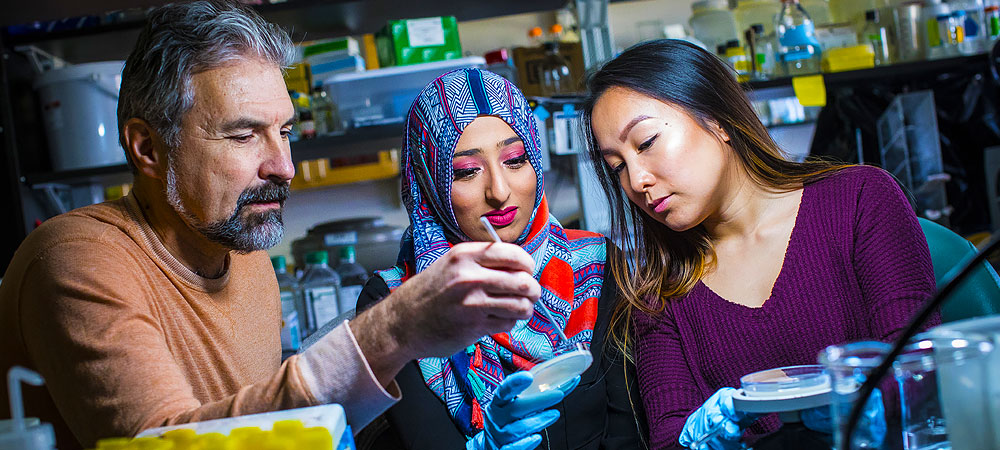Biology - Pre-Medical Professions, BS
The Pre-Medical Professions concentration serves advanced BS Biology students pursing MD (medical doctor), DO (doctor of osteopathic medicine), DPM (Podiatrist), DVM (Veterinarian), Pharm D. (Pharmacy), PA (physician assistant), PT (physical therapy; non 3+3 applicants), and O.D. (Optometry) schools, and related graduate programs (e.g. Occupational Therapy, MS & Ph.D.). BS Biology majors in high academic standing can enter the Pre-Medical Professions concentration after completing the biology core. However, students in any Biology concentration, or in BS Biotechnology, can also pursue the full array of medical careers. The BS Biology degree is the only degree at WPU that requires no coursework outside of the major requirements to apply for medical school (MD & DO), Dental School, Vet school, and Pharmacy school, and requires only one extra course (General Anatomy & Physiology II) for PA and PT school. The Biology department also houses:
Alpha Epsilon Delta (AED), the health pre-professional honor society, WPU Chapter
Pre-Professional Student Clubs: Future Healthcare Providers (FHP) (serving all pre-medical professions), pre- SOMA (a pre-DO club), and the pre-PT club.
In our biology/biotechnology programs, students learn in-demand skills that employers have identified as critical for job candidates, including:
-Knowledge of living organisms, structure and behavioral interactions, and molecular processes.
-Collecting, organizing, interpreting and evaluating scientific information.
-Critically analyzing biological information, including experimental data.
-Drawing valid conclusions from experiments, among others
The biology major is the most popular and straightforward (no extra coursework required) route to gaining admission to all medically related professional schools to pursue a degree as a doctor, dentist, veterinarian, pharmacist, physician’s assistant, physical therapist (PT), or medical perfusionist. The biotechnology major prepares students for careers in academic, clinical, industrial, or government research labs, and for graduate study in biotechnology, molecular biology, biochemistry, and related fields.
| Analytical Skills | Cell Structure | Clinical Research |
| Complex Problem Solving | Critical Thinking | Laboratory Skills |
| Scientific Management |

